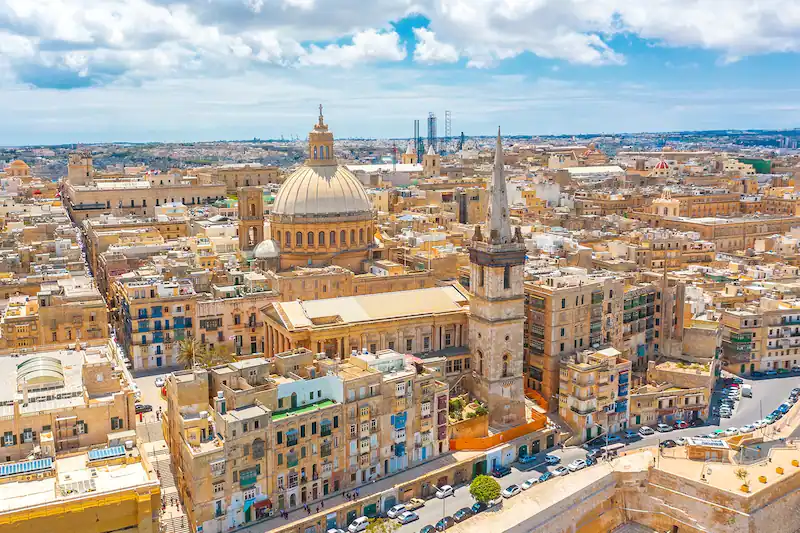
Malta’s Golden Passport Under EU Scrutiny: A Potential End to the Program?
Malta’s Citizenship-by-Investment Program Faces Legal Battle
Malta’s Golden Passport scheme, which grants citizenship in exchange for investment, is facing intense legal scrutiny from the European Union (EU). The European Commission has taken the case to the European Court of Justice (ECJ), arguing that granting passports in return for financial contributions undermines EU citizenship principles. This legal challenge has sparked widespread debate over the future of citizenship-by-investment programs in Europe and whether Malta’s scheme will survive.
As one of the last remaining citizenship-by-investment (CBI) programs in the EU, Malta has drawn significant interest from wealthy individuals looking for visa-free access to Schengen countries and EU residency benefits. However, the case raises fundamental questions about sovereignty, security, and the ethics of selling citizenship.
A ruling against Malta could set a legal precedent, potentially forcing other EU investment migration programs to implement stricter regulations—or even face closure.
What Is Malta’s Golden Passport Program?
Malta’s Individual Investor Programme (IIP), also known as the Golden Passport, was introduced in 2014 to attract high-net-worth individuals willing to contribute to the country’s economy.
To qualify for Maltese citizenship, investors must:
✔ Make a €750,000 contribution to Malta’s national development fund.
✔ Maintain residency for at least one year before applying for citizenship.
✔ Purchase real estate worth at least €700,000 or rent a property for a minimum of €16,000 per year for five years.
✔ Make a donation of €10,000 to a local charitable organization.
Unlike Golden Visa programs, which only grant residency, Malta’s program offers direct citizenship, allowing successful applicants to live, work, and travel freely across all 27 EU nations.
While the program has attracted wealthy investors from China, the Middle East, and North America, it has also been highly controversial, with critics arguing that it creates loopholes for financial crime and weakens EU security policies.
Why Is the European Union Taking Malta to Court?
The European Commission has long expressed concerns over investment-based citizenship, claiming it violates the core principles of EU citizenship. According to Brussels, EU passports should not be commodities sold to the highest bidder, but rather granted based on genuine ties to the country.
Some key reasons why the EU is challenging Malta’s Golden Passport include:
🔹 Security & Due Diligence Concerns: Critics argue that some passport holders have questionable backgrounds, raising concerns about money laundering and security risks.
🔹 Lack of Genuine Residency Requirement: Unlike other EU naturalization processes, Malta does not require investors to live permanently in the country before receiving citizenship.
🔹 Risk of Undermining EU Free Movement: By granting passports, Malta effectively allows wealthy individuals to bypass standard EU immigration rules, creating an unfair advantage over other residency applicants.
In 2022, following sanctions on Russia and Belarus, Malta suspended Golden Passports for these nationalities. However, the EU is now pushing for a full-scale termination of the program, citing its potential misuse.
If the European Court of Justice (ECJ) rules against Malta, the government may be forced to either abolish or significantly reform the scheme.
Possible Outcomes: What Could Happen to Malta’s Golden Passport?
With the ECJ now deliberating, the future of Malta’s citizenship-by-investment program remains uncertain. Three possible outcomes could emerge:
1️⃣ Total Shutdown of the Program
• If the EU court rules against Malta, the government may be required to terminate the program entirely.
• This could signal the end of Golden Passport programs in the EU, setting a precedent for stricter investment migration policies across Europe.
2️⃣ Stronger Residency & Investment Requirements
• Instead of ending the program, Malta could introduce more stringent regulations, such as requiring investors to live in the country longer before obtaining citizenship.
• This would make Malta’s Golden Passport similar to Portugal’s or Greece’s Golden Visa, which require long-term residency before naturalization.
3️⃣ Malta Wins the Case & Continues the Program
• If the court rules in Malta’s favor, it would affirm national sovereignty over citizenship laws, allowing the country to continue offering Golden Passports.
• This could also encourage other EU nations, such as Austria and Bulgaria, to maintain or expand their own citizenship-by-investment initiatives.
Whichever direction the ruling takes, the decision will have lasting consequences for both Malta and the broader investment migration industry.
What Should Investors Expect?
For investors currently considering Malta’s Golden Passport, this legal uncertainty presents significant risks. If the program is shut down, those in the application process could face unexpected delays or outright rejections.
However, alternative Golden Visa programs remain available in Europe and beyond:
✔ Portugal: Provides EU residency through €500,000 fund investments, with a pathway to citizenship in five years.
✔ Greece: Offers residency for a €500,000 real estate investment, though tighter regulations are expected.
✔ St. Kitts & Nevis: Grants citizenship in 3-6 months for a $250,000 contribution.
✔ Turkey: Citizenship-by-investment requires a $400,000 property purchase, offering visa-free travel to 110+ countries.
As EU regulations become stricter, many high-net-worth individuals are exploring alternative options in the Caribbean and Middle East for more flexible citizenship-by-investment programs.
A Defining Moment for EU Citizenship Programs
Malta’s Golden Passport case is more than just a legal dispute—it represents a critical moment for the future of EU citizenship-by-investment programs.
If the EU succeeds in shutting down Malta’s scheme, it could lead to a wider crackdown on residency and citizenship programs across Europe. However, if Malta wins the case, it may pave the way for the continuation of Golden Passport initiatives under stricter regulatory frameworks.
For investors, the key takeaway is uncertainty. Those considering Malta’s Golden Passport should closely monitor the case, while also evaluating alternative investment migration options in Europe, the Caribbean, and beyond.





